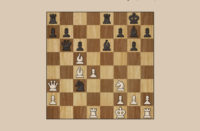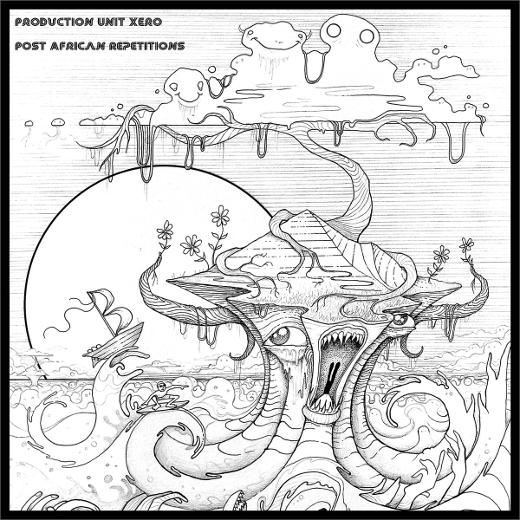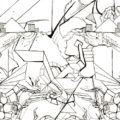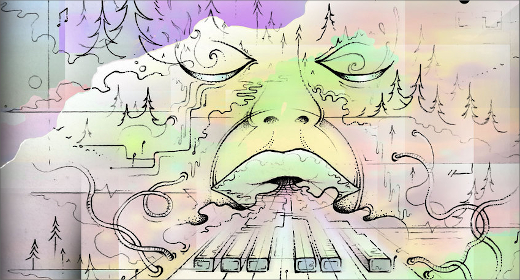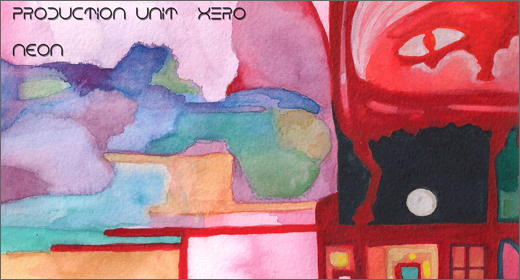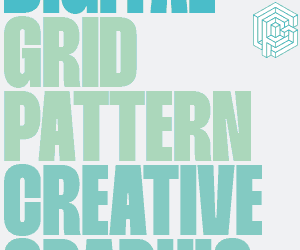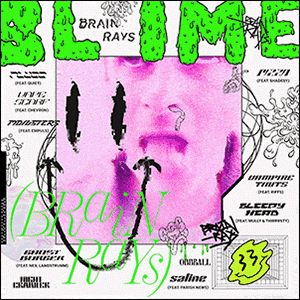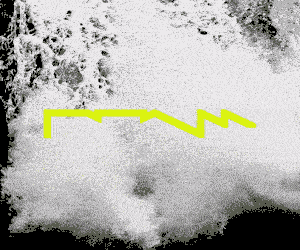Post African Repetitions represents a lofty, cohesive concept: to evoke emotional responses to Mills’ understanding of himself as a product of the African diaspora and an individual with a deep-seated interest in spirituality and mysticism through the medium of IDM-infused electronic music.
Portland, Oregon’s Ramon Mills has ambitions. So far in 2018, he’s released three albums under his Production Unit Xero moniker, played live at least once a month amidst PDX’s burgeoning live synth performance scene, and curates a label, Heterodox, which was also the imprint for the release under consideration here: Post African Repetitions. And it’s only March.
“Lucy” sets the stage for the album with a moody, Blade Runner-esque synth lead over muted, glitchy percussion. Deep bass throbs roll in as the churning drums firm up but never quite congeal into a predictable beat. “Dancing Lights” is up next, evoking the deep-space warbles of Pete Namlook before a tinkling, minimal hip-hop beat emerges from the solar background radiation. Mills’ live process is on display here: he works with hardware synthesizers, drum machines, and samplers in front of a crowd, building form out of chaos and then breaking it down again. Mills says the recording process is similar to playing live: “I would build the basic building blocks on hardware and use Ableton to record MIDI to drive synths and to process the incoming audio. Normally, I’ll record the final audio for each piece of gear separately so I can focus on tweaking knobs and doing live automation type stuff to create variations, fades, sweeps, etc.” This attention to detail comes through clearly as the tracks never feel repetitive or static. But the spine of the tracks, in this case a cheeky swung-out “tock” in place of a snare, keeps the listener grounded through even the deepest knob-twiddling kosmische explorations.
“Chameleon” is up next, introducing the first vocal sample of the release, a pitch-shifted formant snippet that’s soon mirrored down in the bass register and up in a tinkling, twisted harpsichord line. The lurching, dragged-out boom-bap drumbeat fades in and out, leaving an 80s arpeggiated bassline to hold it down, until it fades to silence. “Ciid,” by contrast, keeps a steady, muted 4/4 kick going to flirt with dub techno stylings as subaquatic synth leads play against whip-sharp snares.
The album’s title, its psychedelic, face-melting cover art, and its song titles present the listener with a puzzle. If the tracks are themselves post-African repetitions, what are they repeating? Beats, emotional themes, patterns of thought? The track titles on the back half of the album provide more direct clues, beginning with “Trans Atlantic”, whose abstract breakbeat backbone holds together a tone poem of pads and syncopated steel drum melody. “Dogon” references the Malinese tribe whose advanced astronomical knowledge is frequently cited as evidence of extraterrestrial contact with Earth; the track reflects this in spacey melodic motifs. The next two tracks, “Crow” and “Reconstruction,” are readily interpreted as references to the white-supremacist policies of post-Civil War America. The thematic connection is implied but not explicit, as there aren’t vocal samples or simple melodic analogies to these horrific episodes in our national register; instead, the tracks continue the trend of glitchy percussion under floating melodic lines. “Reconstruction” does provide an emotional climax to the album, a “settling point” as PUX describes it, as its brooding, heavy bassline unfolds and develops over five minutes as a sorrowful melodic threnody evokes the pain humans can inflict on one another in the interest of power and subjugation.
“Edo”, presumably named after the Nigerian language, presents subterranean bass and washes of pitch-shifted cymbals fighting for supremacy over a plucked melodic line. Finally, the album closes with “Amma,” an homage to the aforementioned Dogon people’s highest god, which features a meditative synth evocative of Autechre’s epiphanic “vletrmx” above minimal, undulating percussion.
Taken as a whole, PUX’s Post African Repetitions represents a lofty concept: to evoke emotional responses to Mills’ understanding of himself as a product of the African diaspora and an individual with a deep-seated interest in spirituality and mysticism through the medium of IDM-infused electronic music. At this, he succeeds admirably because the album is not only thought-provoking, it’s also frankly an enjoyable and pleasing listen. When you consider this is one artifact of three, it becomes even more impressive a feat. His ambitions are matched with talent, and it’ll be a privilege to see where they take him next.
Post African Repetitions is available on Heterodox.








